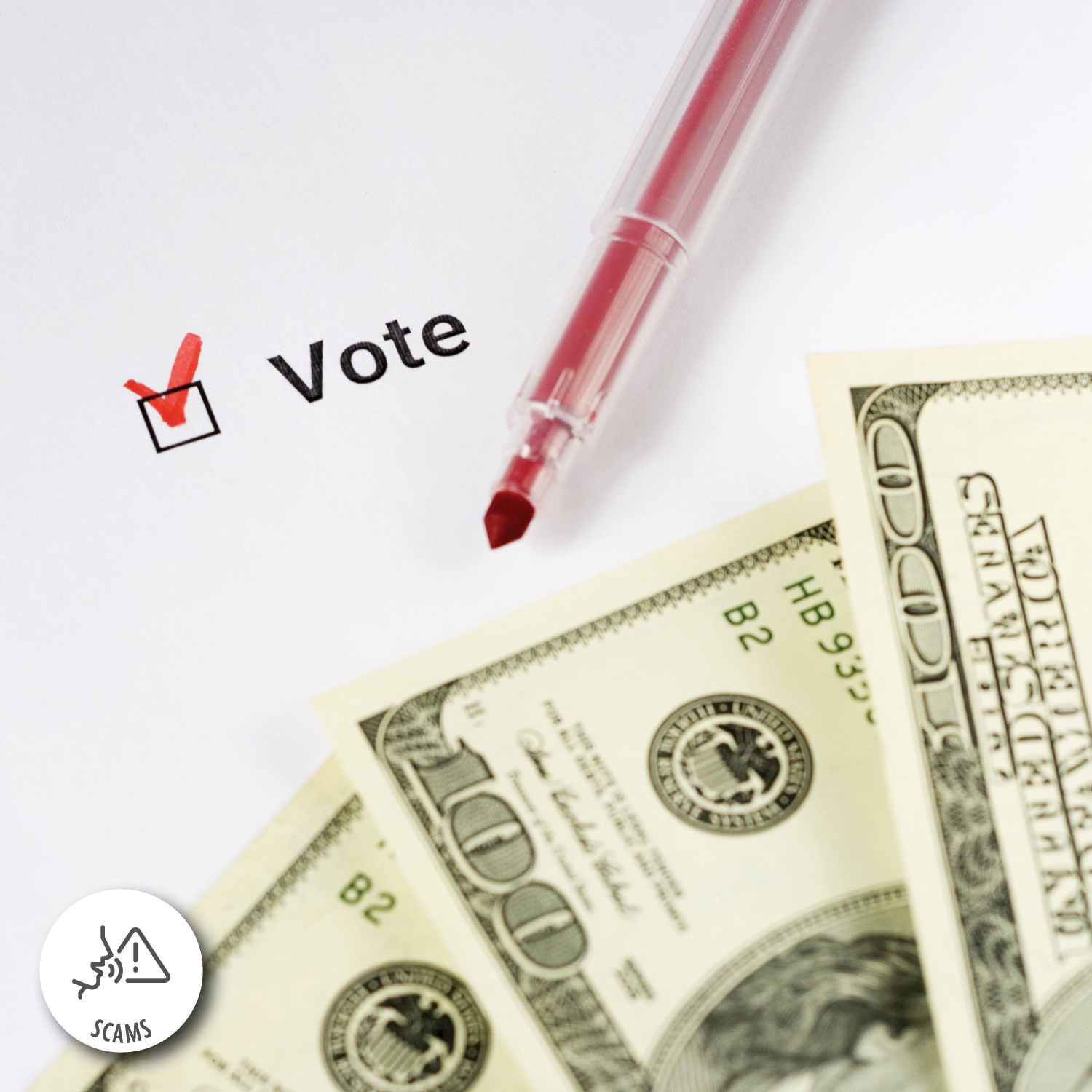Don't Get Caught in an Election Scam

- Eleventh-hour campaign contributions
This scheme targets voters right before elections, asking them to make a donation toward their preferred candidate’s campaign. They’ll claim to represent the candidate, and inform the target that the candidate just needs one big push to move to the front of the line. The target is led to believe their small donation will make their candidate emerge as victor on election night.
Unfortunately, if the target believes the caller and makes a donation, they’ll only help line a scammer’s pockets. Sometimes, the scammer will take it one step further and use the credit card information shared to rack up a huge bill on the victim’s tab.
Stay safe: If you’d like to contribute to a candidate’s campaign, reach out to campaign headquarters on your own through their website.
- Polling for information
During election season, informal poll-takers and petitioners are everywhere. They may approach you in the parking lot of a supermarket, at a ballgame or even at a music festival. Once they have your attention, they’ll ask who you’re voting for, request that you fill out a survey or have you sign an election petition on a particular issue. But first, they’ll need your personally identifiable information (PII), such as your name, date of birth, home address and even your Social Security number. You may be compelled to participate because you’re happy to help your chosen candidate in any way possible. If you do, though, you’ll be sharing your information with a scammer.
Stay safe: Guard your PII like the treasure it is and never share any of it with an unverified contact. This includes impromptu surveyors, pollsters and the like. If you do decide to fill out a voter survey, be super-selective about the information you choose to share. Don’t share your Social Security number, driver’s license number or any other information that can be hijacked for crime.
- Voter re-registration
Voting has changed a lot since COVID-19 entered our world. Absentee voting is far more popular than it used to be, and many voters may find the rules and regulations confusing. Scammers, of course, will take advantage of this to get at your information and your money.
Here’s how: In the weeks leading up to Election Day, scammers send out bogus voter registration forms for voters. They may include a claim that your name has been mistakenly removed from the voter rolls, but you can easily get right back on by filling out this form and mailing it out to them. Alternatively, they’ll reach out by phone, text or email, telling you to register by responding. Naturally, these messages are the work of scammers, and if you share your info, you’ll be sharing your sensitive information with crooks.
Stay safe: Remember that you can only register to vote by mail. In addition, there’s no reason to believe your registration is no longer valid just weeks before Election Day. If in doubt, you can always search your state’s Secretary of State website. Also, if you choose to register to vote while in a public area, take the form home with you to mail in later instead of leaving it behind with a group of volunteers.
Election season means election scams are rampant. Do your due diligence before contributing to a campaign, taking a survey or registering to vote. Stay safe, and may the best candidates win!
« Return to "Blog"
